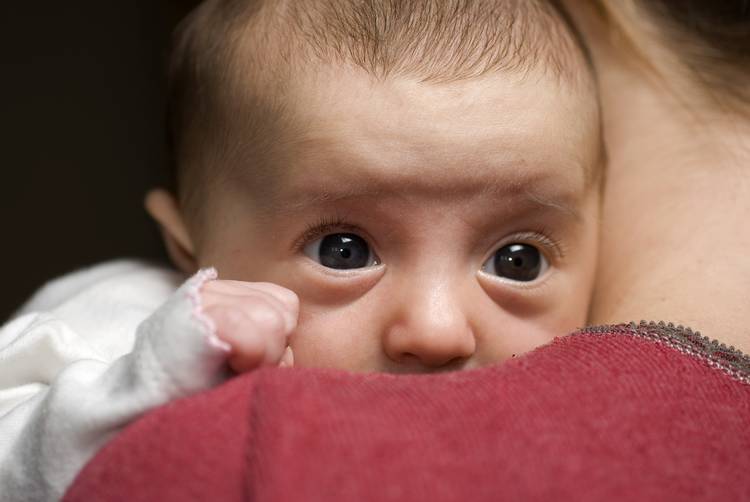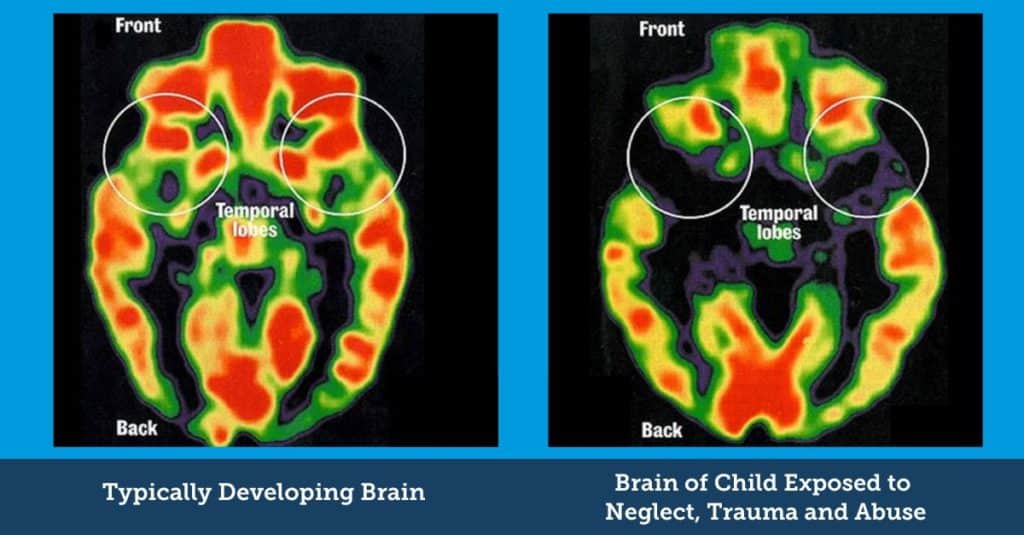What does trauma do to a baby’s brain?

Key Takeaways
- Trauma can greatly impact the developing and vulnerable minds of young children aged 0-3.
- If babies experience too many traumatic events, their brains become primed to react to the world in fear. It rewires their neural pathways and can have a lifelong negative impact.
- When babies have the support of loving adults after traumatic events, the research shows they are more likely to recover without lasting damage.
More than 20% of infants and toddlers will have one significant adverse experience.
Our focus on infant and early childhood mental health means we are deeply invested in learning about how experiences shape young brains. This includes both the positive and negative experiences. Trauma can greatly impact the developing and vulnerable minds of young children aged 0-3. However, the impact of trauma can vary depending on some key factors.

This is what trauma is →
There is a range of traumatic events or trauma types to which young children can be exposed.
- Trauma is an event that is perceived as a threat or a danger. The body reacts protectively with the “fight, flight, or freeze response.”
- Fight, flight, or freeze is a good thing. It’s the brain’s way of protecting us from harm.
- Over time, though, chronic trauma and stress can change how our brains respond to the world around us. We begin to react instinctively to protect ourselves, even if the threat is minor. It becomes easier to trigger our “fight, flight, or freeze” response.
This is what trauma does to a baby’s brain →
Adverse childhood experiences can have lifelong effects.
- If babies experience too many traumatic events, their brains become primed to react to the world in fear. It rewires their neural pathways and can have a lifelong negative impact.
- It becomes harder over time for infants and toddlers to access their cerebral cortex or “thinking brain.” They function from their limbic system instead. Some call this our “caveman brain.”
- In severe cases, the cerebral cortex (our “thinking brain”) actually becomes less developed than it would be without toxic stress.
- Babies who don’t have consistent, loving support from adults in their lives are even more deeply affected by trauma.
This is how we can help →
We all have a role to play.
- By supporting grownups. When babies have the support of loving adults after traumatic events, the research shows they are more likely to recover without lasting damage.
- By supporting families. Poverty, natural disasters, war, and conflict all increase the chance of exposure to traumatic events. When we offer programs that buffer families from this stress, they are better able to protect their children from trauma.
- By supporting professionals. Early childhood professionals who understand the effects of trauma are better able to support children and their families through toxic stress.
- By supporting research. The more we know about trauma and early brain development, the more skilled we can become at preventing damage to growing brains.
Check out our early brain development training programs
Katrina Macasaet helps early childhood professionals explore the science of brain development with The Growing Brain: From Birth to 5 Years Old curriculum.

Next Up
Go to Next ResourceCompassionate Response
A free training experience designed for agencies partnering with First Responders First Responders often interact with families during some of their most stressful or frightening moments. Children are frequently present during these calls, in their homes or the community, whether they involve firefighters, EMTs, or police. What children see and experience on scene can have lasting impacts on their social-emotional […]
